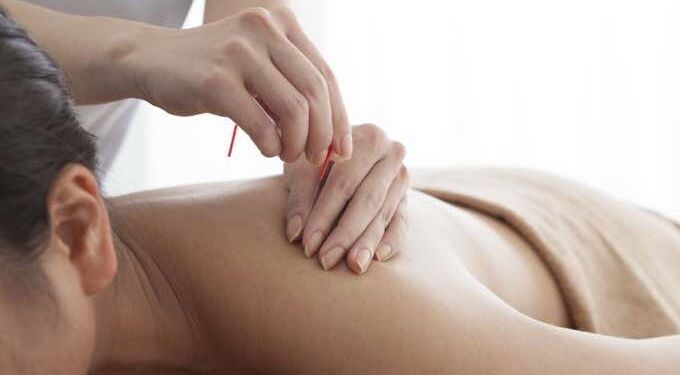Christina Sarich | Waking Times
It’s no wonder people are turning to alternative medicine to alleviate their symptoms of depression and anxiety in droves. The mainstream medical model has failed – miserably. Even Harvard medical school has admitted that drugs “aren’t solving mental illness,” if depression can even be labeled as such.
Depression is more likely a very natural reaction – to a systemic lack of positive social relationships, an onslaught of chemical toxins and poor dietary choices that lead to chronic inflammation, and even a political-social scheme that prohibits people from taking full responsibility for their life choices, blocks them from choosing their correct life path, and more.
The very medications that are supposed to make us “happier” than the average person, don’t even create baseline happiness while promoting a hedonic treadmill that ironically can lead to even more feelings of dissatisfaction and unrest. In the worst cases, this treadmill puts us on a direct path to self-destruction.
However, instead of discussing the myriad reasons depression is a veritable epidemic today, let’s talk about a simple solution. It’s acupuncture.
Arguably, our lives have been robbed. In the past 15 years, antidepressant use in the United States has soared by 65%. That’s unconscionable.
Can you just imagine what would have happened if healing modalities like yoga, massage, meditation, herbal medicine, and acupuncture had been explored as options to treating mental well-being with 1/100th of the budget that has been spent on the research, development, and marketing of antidepressant drugs?
There might be 10% of the people on the entire planet who felt depressed, instead of the 70% average we are headed toward.
1. Acupuncture Balances Your Hormones
The sad truth is that depression affects twice as many women as men, and though there are multiple theories about why this happens, one very obvious reason is that a woman’s hormonal system is much more complex than a man’s. She goes through massive hormonal changes from puberty through menopause in order to give birth. Hormonal imbalances can cause grievous mood swings, and all manner of health complications, yet acupuncture manages to halt symptoms like hot flashes, night sweats, and tonifies the entire endocrine system.
It also balances the yin and yang (hot and cold) aspects of our essential nature. Acupuncture helps with blood flow (even to the brain) and can regulate estrogen, testosterone, and other important mood-altering hormones like cortisol, adrenaline, and norepinephrine.
One study conducted at Georgetown University Medical Center and the University of Hong Kong found that electroacupuncture at acupuncture point ST36 prevents stress-induced increases in HPA hormones, and has potentially long-lasting effects.
The RU-486 acupuncture point was also proven to alter the hypothalamic-pituitary-adrenal-axis in chronically stressed rats in laboratory tests.
2. Acupuncture Alters Your Gut Health
Aspects of our gut are still being explored, but one thing is certain. Our gut-brain axis is in charge of a whole bunch of stuff in our bodies. The Human Microbiome Project has discovered that the brain and gut are constantly talking to one another, and therein may lie the connection between chronic gut inflammation and depression and anxiety. If your gut is unhappy, basically, so too will you be.
We host all kinds of bacteria, microorganisms, and viruses in our bodies. Some help us feel happy, and some contribute to sugar-cravings, which cause us to have wild blood-sugar swings, which can lead to anxiety and depression.
For hundreds of thousands of years these bacteria and human beings have lived in a healthy symbiosis that contributes to a thriving immune system and powerful mental health. When this is altered by modern habits, both decline.
One of the most ancient practitioners of acupuncture understood how delicate this balance is and how it contributes to mental health.
Zhang Jie Bin, one of the four great masters of the Ming Dynasty and a scholar of traditional Chinese Medicine wrote, “The doctor who wants to nourish life has to tonify [the] stomach and spleen.”
Acupuncture can do just this – thus supporting a healthy gut with increased blood flow, and vital energy to the millions of neurons that line the gut-brain axis.
3. Acupuncture Can Help You Lose Weight (Obesity and Depression are Linked)
Recent studies have linked obesity to depression. This is markedly noticeable among adolescents. Though acupuncture doesn’t magically melt fat cells away, it does something even more astounding. It treats obesity at its root cause.
When we crave unhealthy foods it is usually due to imbalances in our bodily systems. Though we crave foods like unhealthy fats, refined sugars, fried foods, salt, etc., these are the very foods that our bodies simply cannot digest. Sometimes it is due to an enzyme deficiency.
Other times it is because these are simply toxic, nutrition-lacking foods that our body cannot get rid of fast enough, as there are no nutrients to assimilate.
For example, when an obese person experiences low blood sugar (a common problem) it is because their bodies cannot easily digest naturally sweet foods like fruit, so their bodies begin to crave refined sugars found in cakes, cookies, and candy.
This then raises their insulin level, leading to Diabetes. Their blood sugar levels spike and dive all day long, causing them to want to eat all day. Their system is in a perpetual state of imbalance, which is only reinforced by the habits created by such an imbalance.
Acupuncture can help normalize the system, and aid weight loss when accompanied by proper diet and exercise, but it also breaks the cycle so that someone can even try to eat correctly and have enough energy to want to exercise.
4. Acupuncture Creates Endorphins
Many people who suffer from chronic physical pain also become depressed, and who wouldn’t? But acupuncture can provide relief as more than just a placebo. Richard Harris, a neuroscientist from University of Michigan used brain scans to prove that acupuncture can provide an endorphin hit which mitigates physical pain.
Fibromyalgia patients in his study received either real or placebo acupuncture (using retractable needles at non-acupuncture points). Their brains were then scanned using (PET) imaging.
Though PET scans can’t see endorphins directly, they can detect opioid receptors that these molecules target.
Opioid receptors are present on the surface of nerve cells in the brain. When triggered by endorphins (or other opioid molecules such as morphine), they prevent cells from sending pain signals.
After a single acupuncture session, as well during a month-long treatment with acupuncture, both the placebo group and the acupuncture group reported a reduction in pain.
Other studies also indicate that endorphin creation can boost mood, reduce chronic pain, and help alleviate anxiety about anticipated pain.
5. Acupuncture Can Override a Genetic Predisposition Toward Anxiety and Depression
One of the most common reasons given for depression and anxiety today is that is just “in our genes.” Though we can certainly attribute genetics to depression it doesn’t mean we are powerless to do anything about it.
Acupuncture can act as an epigenetic stimulus to alter our biochemistry, which may have been passed down through multiple generations.
One study published in Nature found that a single round of electroacupuncture could remodel epigenetic and transcriptional changes in adipose tissue.
Other studies suggest that our very DNA modulation can be altered by holistic modalities like acupuncture.
6. Neurotransmitters Are Influenced with Acupuncture
Another cause of depression is said to be an imbalance in neurotransmitters like serotonin, dopamine, and norepinephrine.
One study suggests that serotonin can be stimulated with this ancient healing modality, while not increasing dopamine, but synaptic availability of dopamine was measured in another study which means it makes neurotransmitters more capable of lessening the selective loss of dopaminergic neurons – which allow your body to experience the mood-boosting elements of dopamine itself.
7. The Brain Itself is Influenced by Acupuncture
The amygdala in the brain is deeply connected with depressive symptoms. It is part of the limbic system, a group of deep structures that are associated with emotions like anger, pleasure, sorrow, fear, and sexual arousal.
In major depressive disorder, it is believed that the amygdala is abnormal in mass and or size, but it turns out we can “train” the amygdala to be happy with neurofeedback, and other modalities. Like – you guessed it, acupuncture.
The amygdala is part of the limbic system which is primarily responsible for our emotions and memories. fMRI studies have shown that certain acupuncture points can help to release stored emotional pain in the limbic system, which also changes the neurological activity in the amygdala.
For instance, if you were just looking for a house for sale in Boston, your brain would then direct you to find one by either looking on the Internet, talking to friends in the area, driving through some neighborhoods and so forth.
When acupuncture stimulates certain points in the brain, it tells the amygdala to look for new ways to frame an experience (memory) so that it no longer experiences that memory as emotionally painful.
Instead, it looks at the memory as a simple piece of information that you can catalog or seek more information about, like looking for a house. It is a neutral experience that no longer triggers unpleasant feelings.
8. Acupuncture Boosts Nerve Cell Communication
While most of us think that our good mood is produced purely by neurotransmitters, the chemicals that relay messages from neuron to neuron, the spaces between these neurons (the synapses is equally important) as they allow the signal to transpire.
Our neurons have a cell body, and from it, branchlike fibers called dendrites reach out, with one being more prominent, called the axon. This is essentially a nerve fiber.
The neurobiological aspects of acupuncture are just now being studied, but it is likely that it helps to promote nerve health, along with supporting the actual chemical message being balanced as well.
9. Acupuncture Can Lower Stress Which Can Cause Depression
Chronic stress is a deadly thing. It can cause all kinds of physical disease, but it can also lead to depression and anxiety, with its own physiological consequences.
It triggers a chain of chemical reactions and responses in the body, and we’re wired to handle that on a temporary basis. However, when stress is chronic or the system gets stuck in overdrive, changes in the body and brain can be long-lasting.
Acupuncture can help destress us so that a negative physiological feedback loop cannot cause depression.
10. Acupuncture Changes our Energy
Modern science is hesitant to recognize the energetic components of many healing modalities but ancient texts were well aware of this phenomenon. Through the oral tradition of Traditional Chinese Medicine, this and many other secrets of acupuncture’s ability to heal coupled with herbal wisdom were espoused all the way through to the Huang-Di Nei-Jing, a 5,000-year-old text on the subject.
Read more articles by Christina Sarich.
About the Author
Christina Sarich is a staff writer for Waking Times. She is a writer, musician, yogi, and humanitarian with an expansive repertoire. Her thousands of articles can be found all over the Internet, and her insights also appear in magazines as diverse as Weston A. Price, Nexus, Atlantis Rising, and the Cuyamungue Institute, among others. She was recently a featured author in the Journal, “Wise Traditions in Food, Farming, and Healing Arts,” and her commentary on healing, ascension, and human potential inform a large body of the alternative news lexicon. She has been invited to appear on numerous radio shows, including Health Conspiracy Radio, Dr. Gregory Smith’s Show, and dozens more. The second edition of her book, Pharma Sutra, will be released soon.
This article (10 Ways Acupuncture Can Replace Antidepressants and Give You Your Life Back) was originally created for The Mind Unleashed and is published here with permission. It may be re-posted freely with proper attribution and author bio.






